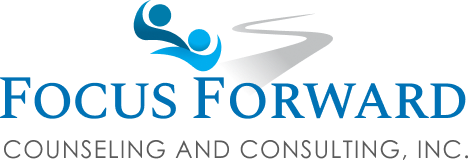Dyslexia Symptoms, Testing & Treatment
What is Dyslexia?
Dyslexia is a “specific learning disorder.” The “specific” part means that the individual may be performing well in other academic areas, and their difficulties with reading are not due to having lower intelligence. Dyslexia is estimated to affect between 5% to 20% of the population and is the most common learning disability. It has a strong genetic link, so if a parent or sibling struggles significantly with reading, dyslexia has an increased likelihood with an individual. It tends to occur fairly evenly between males and females. While popular culture thinks that dyslexia is due to reading or seeing words “scrambled” or letters flipped, the true core of dyslexia is more so related to difficulties with processing sounds related to speaking and reading.
Signs & Symptoms of Dyslexia
Common signs of dyslexia in preschool include:
-
-
- Delays in speaking first words
- Difficulties with learning the alphabet
- Having more difficulty in pronouncing words than other kids their age
- Problems with rhyming
- Difficulties in blending the sounds of letters or words
-
As children progress into Kindergarten and grade school, they may continue to struggle with:
-
-
- Breaking down the sounds in single words
- Learning the connection between letters and sounds
- Confusing or flipping letters or math operation signs
- Guessing words based on their first letter
- Memorizing words
- Anxiety and avoidance related to reading out loud
- Developing vocabulary
- Issues with spelling
- Executive functioning difficulties
-
Dyslexia Treatment
Because of their specific learning disorder, children with dyslexia shouldn’t be expected to pick up reading skills as naturally as other children, and typical reading instruction does not provide the structure or specificity needed to help them overcome their barriers. Children with dyslexia require a more structure program that teaches them skills such as:
- Learning to recognize the smallest meaningful sounds of words (phonemes)
- Comprehending that single letters and groups of letters represent sounds (phonics)
- Reading Comprehension skills
- Practice with accuracy, speed, and expression when reading (fluency)
- Building vocabulary
While these disorders are not curable, intervention can help significantly. In the case of dyslexia, a structured reading program such as The Orton-Gillingham Approach. The Orton-Gillingham Approach is a direct, explicit, multisensory, structured, sequential, diagnostic, and prescriptive way to teach literacy when reading, writing, and spelling does not come easily to individuals, such as those with dyslexia. Our office can also help with referrals to professionals such as tutors, psychiatrists (for co-occurring issues such as ADHD), special schools, occupational therapists, and more.
Testing for Dyslexia
If you suspect that you or your child display signs of dyslexia, the best thing you can do is intervene early. Intervention begins with a solid assessment of the difficulties present. Psychological testing and evaluation can be helpful toward this goal, as it helps to explore background history and test an individual’s abilities directly through standardized assessment of the neurological abilities and reading skills important for successful reading. The assessment process also collects collateral information from teachers so that a perspective on your child’s in-class performance can be gathered from those who see them in an educational context every day. Other issues such as ADHD, dysgraphia (writing disorder), and dyscalculia (math disorder) also commonly occur with dyslexia. That is why, if there’s any doubt, it’s best to get a full psychoeducational evaluation that covers all of these areas together. An evaluation can help answer questions such as “How likely is it that I have a specific learning disability?,” “Do I have ADHD?,” and “What specific aspects of these disorders am I struggling with?”
Overall, psychological testing and evaluation is a great way to get a comprehensive look at your problems and focusing forward to getting the help you need.
